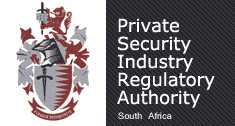FOR MORE EC SECURITY SAFETY HINTS AND TIPS CLICK HERE
HOME FIRE SAFETY TIPS
General Safety Tips
- Keep matches out of the reach of children
- Do not overload electrical sockets or run electrical cords under carpets
- Install smoke detectors in your home
- Take care with portable heat generating appliances such as irons, kettles and heaters
- Develop and practice an escape plan - plan two ways out of every bedroom
- Never use flammable liquids for starting braai fires or to remove stains from clothing
Know what to do if a fire occured
- Display your local Fire Department telephone number near the phone then learn it
- Crawl low in smoke
- Never open a door that is hot to the touch
- Wake everybody in the house
- If your clothing catches fire - STOP, DROP, ROLL
- Have a safe place to meet out of the house
- Never re-enter the house for pets or personal belongings
- Tackle the fire if it is safe to do so

INDUSTRY FIRE SAFETY TIPS
The following checklist for fire safety in Industry is printed with acknowledgement to the Fire Protection Association, U.K. It should be of assistance in maintaining premises reasonably safe from fire.
- Are the premises kept clear of all kinds of refuse and process waste?
- Is waste swept up and removed from the premises at least daily?
- Are areas in and around the building kept free from accumulated packing materials such as empty wooden crates, straw, paper, etc.?
- Are metal bins with lids provided for readily combustible waste materials such as oily rags?
- Is there fire resisting separation between storage and raw material areas and manufacturing areas?
- Are storage places accessible to fire fighters?
- Are there clear spaces around stacks of stored materials and adequate gangways between them?
- If a sprinkler system is installed are stacks of material arranged so that they do not impede the effective operation of the sprinklers?
- Are stocks of paint, lacquer, flammable solvents, thinners and other flammables stored in detached single story buildings of entirely non-combustible construction which are used for no other purpose?
- Are flammable liquids carried about in safety containers and not in open tins, buckets, etc.?
- Are flammable liquids handled only at a safe distance from possible sources of ignition?
- Are suitable non-sparking tools provided for use in places where flammable liquids are kept or used?
- Is machinery regularly inspected with the emphasis on lubrication and cleanliness?
- Are drip trays provided?
- Have steps been taken to prevent floors and walls becoming soaked with oil?
- Are heating appliances at a safe distance from woodwork and combustible building boards?
- Are portable heaters securely guarded and placed or fixed so that they cannot be knocked over?
- Are defects in electrical equipment remedied at once?
- Are electrical installations tested and inspected at least every three years?
- Is temporary extension wiring kept to a minimum and care taken not to overload existing circuits?
- Is the use of portable lamps kept to a minimum and are those used provided with strong wire guards?
- Are the main switches of all electrical circuits in the off position when the equipment is not in use?
- Is fire equipment maintained in good working order at all times and is it accessible for immediate use?
- Are fire resisting doors kept closed whenever possible and always after working hours?
- Does the watchman have access to a telephone and if so does he know how to use it?
- Is the telephone number of the fire brigade prominently displayed?
- Is the watchman trained in the use of first aid and fire fighting equipment?
- Is a routine inspection of the premises made when work has finished?
- Is there someone on the staff at management level responsible for fire prevention measures?
- Is every employee aware of the means of escape from the premises?
- Does every employee know how to use the fire equipment?
- To obviate water damage are goods stored clear of the floor?
- Are drains and scuppers provided and are they kept unobstructed?
- Are adequate receptacles for cigarette ends provided?
- Are these receptacles emptied when work is finished each day?
- Are the buildings so maintained as to be proof against the entry of intruders or the accidental entry of sparks or water?
- Is there a system of supervision of any welding operations or other hot work that may be carried out on the premises?
- If the answer to any of the above questions is NO!! immediate action should be taken.
FOR ALL OF YOUR SAFETY AND SECURITY NEEDS, PLEASE FEEL FREE TO CONTACT US AT EC SECURITY AND OUR TRAINED PROFESSIONALS WILL ASSIST AND ADVISE YOU












0 comments:
Post a Comment